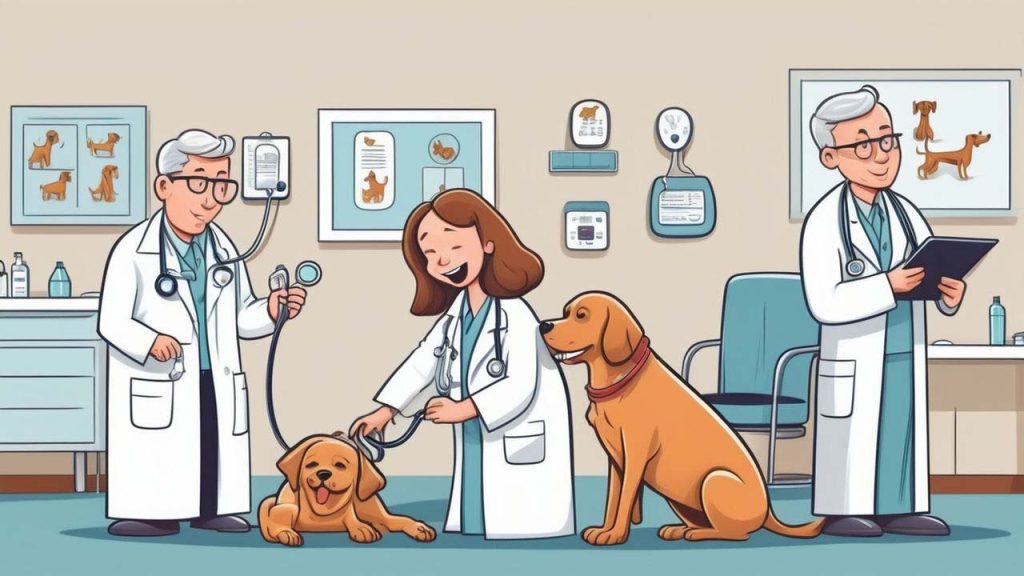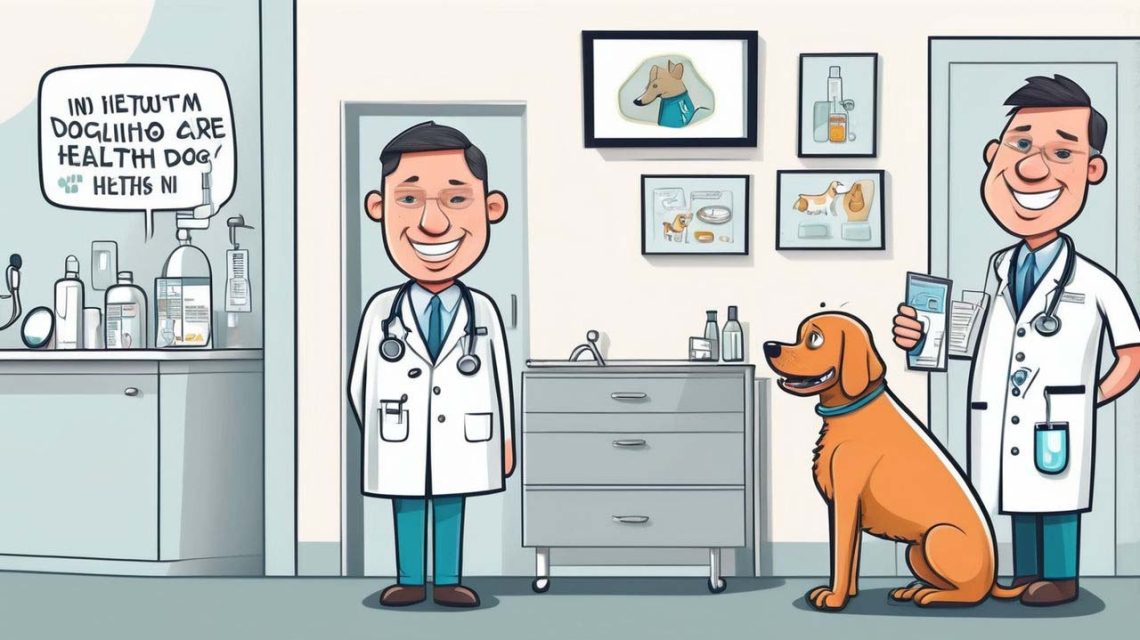Dog Health Care : Essential Tips for a Happy, Healthy Pet
As a loving dog owner, your dog’s health is one of your top priorities. Keeping your pet healthy involves more than just feeding and walking them. Proper dog health care includes a combination of nutrition, regular vet visits, vaccinations, grooming, and plenty of exercise. With the right care and attention, you can ensure your dog lives a long, happy, and active life.
In this guide, we’ll explore the essential aspects of dog health care, offering practical tips to keep your dog in great shape. Whether you’re a new dog owner or an experienced one, this article will help you understand how to provide the best care for your furry companion.
1. Regular Veterinary Visits
One of the most important aspects of maintaining your dog’s health is regular checkups with a trusted veterinarian. These visits allow you to catch any potential health problems early before they become serious.
Why Vet Visits Matter
Routine vet visits provide an opportunity to monitor your dog’s overall health. During these checkups, your vet will examine your dog’s weight, heart rate, skin condition, and more. Additionally, regular vaccinations and parasite control are essential to protect your dog from diseases like rabies, parvovirus, and heartworm.
Veterinary visits also offer a chance to discuss any behavioral changes or concerns you might have about your dog’s diet, exercise routine, or habits.
How Often to Visit the Vet
For puppies, more frequent vet visits are necessary—usually every 3-4 weeks until they are about 16 weeks old. After that, most dogs benefit from annual checkups, though older dogs or those with health issues may require more frequent visits.
2. Balanced Nutrition for Dogs
A healthy dog starts with a balanced diet. Proper nutrition ensures your dog gets the essential nutrients they need to thrive, from proteins and fats to vitamins and minerals.
Choosing the Right Dog Food
Not all dog foods are created equal, so it’s important to select one that meets your dog’s specific nutritional needs. Whether your dog needs a high-protein diet, grain-free options, or food for sensitive stomachs, choose a high-quality brand that uses natural ingredients without artificial fillers.
Transitioning to new food should be done gradually to avoid upsetting your dog’s digestive system. Always consult with your vet to determine the best diet based on your dog’s age, breed, weight, and any specific health conditions.
The Role of Treats
Treats are a great way to reward your dog during training, but they should be given in moderation. Overfeeding treats can lead to obesity, which can cause various health problems, including joint issues and heart disease. Stick to healthy, low-calorie treats, and ensure they don’t exceed 10% of your dog’s daily caloric intake.
3. Exercise and Mental Stimulation
Just like humans, dogs need regular exercise to maintain a healthy weight, strengthen their muscles, and keep their heart in good shape. Physical activity also helps prevent boredom, which can lead to destructive behaviors like chewing or excessive barking.
Daily Walks and Playtime
Daily walks are a staple of good dog health care. Depending on your dog’s breed and energy level, they may need anywhere from 30 minutes to 2 hours of exercise each day. High-energy breeds, such as Border Collies or Labradors, benefit from longer, more vigorous activities, while smaller or older dogs may need shorter, more frequent outings.
In addition to walks, provide plenty of opportunities for playtime. Fetch, tug-of-war, and interactive toys that engage your dog’s mind are excellent ways to keep them entertained and happy.
Mental Stimulation
Beyond physical activity, dogs also need mental stimulation to stay sharp. Puzzle toys, training exercises, and teaching new commands all contribute to a dog’s cognitive health. Regular mental challenges can prevent boredom and reduce anxiety, especially for dogs left alone for long periods.

4. Proper Grooming for Health
Grooming isn’t just about keeping your dog looking their best; it’s also vital for their health. Regular grooming routines, such as brushing, bathing, and nail trimming, help prevent infections, skin conditions, and other health issues.
Brushing and Coat Care
Different breeds require different grooming needs. Long-haired dogs, like Golden Retrievers, need frequent brushing to prevent matting, while short-haired breeds may only need occasional brushing to remove loose fur. Brushing not only keeps your dog’s coat healthy and shiny, but it also helps reduce shedding and distribute natural oils across their skin.
Bathing
While dogs don’t need daily baths, regular bathing (every 4-6 weeks) helps keep their skin and coat clean. Use a dog-specific shampoo that won’t dry out their skin, and avoid over-bathing, as it can strip their coat of essential oils.
Nail Trimming and Dental Care
Overgrown nails can cause discomfort and even lead to injuries. Regular nail trimming ensures your dog’s paws stay healthy and free of pain. If you’re unsure how to trim your dog’s nails, your vet or groomer can show you the correct technique.
Oral health is another often overlooked part of dog care. Brush your dog’s teeth regularly to prevent gum disease, bad breath, and tooth decay. Dental chews or toys designed to clean teeth can also help maintain oral hygiene between brushings.
5. Protecting Your Dog from Parasites
Parasites like fleas, ticks, and heartworms can cause serious health problems for dogs if left untreated. Prevention is key to keeping your dog healthy and parasite-free.
Flea and Tick Prevention
Fleas and ticks can cause a range of issues, from skin irritation to more serious conditions like Lyme disease. Using flea and tick preventatives—whether topical treatments, oral medications, or collars—is essential for protecting your dog, especially during warmer months.
Heartworm Prevention
Heartworms are potentially fatal parasites that are transmitted through mosquito bites. Regular heartworm prevention medication is a must, particularly in areas where mosquitoes are common. Consult your vet for the best heartworm prevention plan based on your dog’s lifestyle and region.
6. Maintaining a Healthy Weight
Obesity is one of the most common health issues in dogs today, and it can lead to a variety of serious health problems, including diabetes, arthritis, and heart disease. Keeping your dog at a healthy weight through proper diet and regular exercise is critical to their long-term well-being.
Signs Your Dog Is Overweight
If you’re unsure whether your dog is at a healthy weight, check for these signs:
- You can’t easily feel their ribs.
- They lack a defined waistline when viewed from above.
- They have difficulty moving or are easily fatigued.
If you suspect your dog is overweight, talk to your vet about creating a weight management plan that includes portion control, increased exercise, and possibly a specialized diet.
7. Mental and Emotional Health
Taking care of your dog’s mental and emotional health is just as important as their physical health. Dogs thrive on companionship, and a lack of social interaction can lead to behavioral issues or even depression.
Bonding Time
Spending quality time with your dog through play, walks, and affection strengthens your bond and keeps them emotionally healthy. Dogs are pack animals, and they feel happiest and most secure when they have regular contact with their family.
Training and Positive Reinforcement
Training is not only a way to teach your dog commands, but it also provides mental stimulation and a sense of accomplishment. Positive reinforcement training, which rewards good behavior with treats or praise, is an excellent way to build trust and confidence in your dog.
FAQs About Dog Health Care
How often should I take my dog to the vet?
- Most dogs should visit the vet once a year for a routine checkup. However, puppies, senior dogs, and dogs with health issues may require more frequent visits.
What is the best diet for my dog?
- The best diet for your dog depends on their breed, age, and health needs. Consult your vet to determine the right food and portion sizes for your pet.
How do I prevent my dog from getting fleas and ticks?
- Flea and tick preventatives, such as topical treatments, oral medications, or collars, are effective ways to protect your dog from these parasites.
What’s the ideal amount of exercise for my dog?
- Exercise needs vary based on breed, age, and health, but most dogs benefit from at least 30 minutes to 2 hours of physical activity each day.
How can I keep my dog’s teeth healthy?
- Regular brushing, dental chews, and routine vet checkups are essential for maintaining your dog’s oral health.


